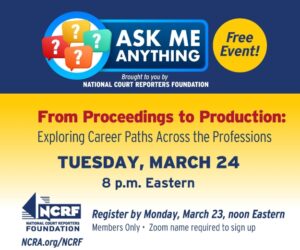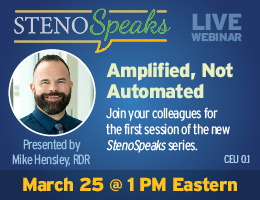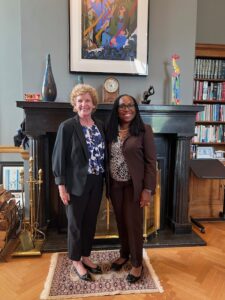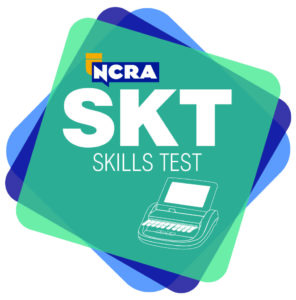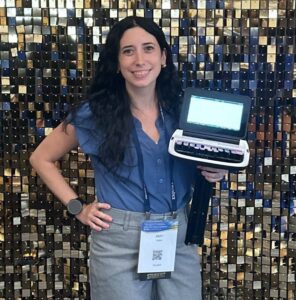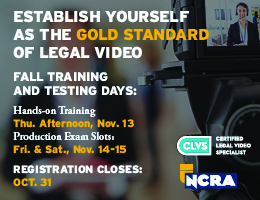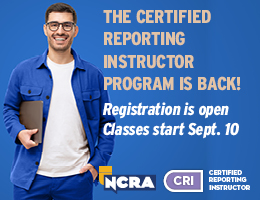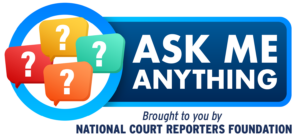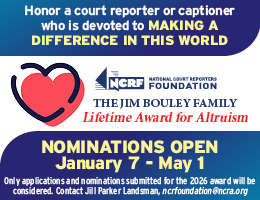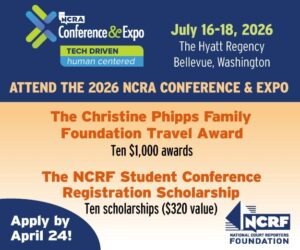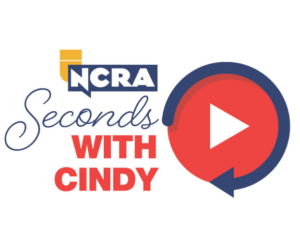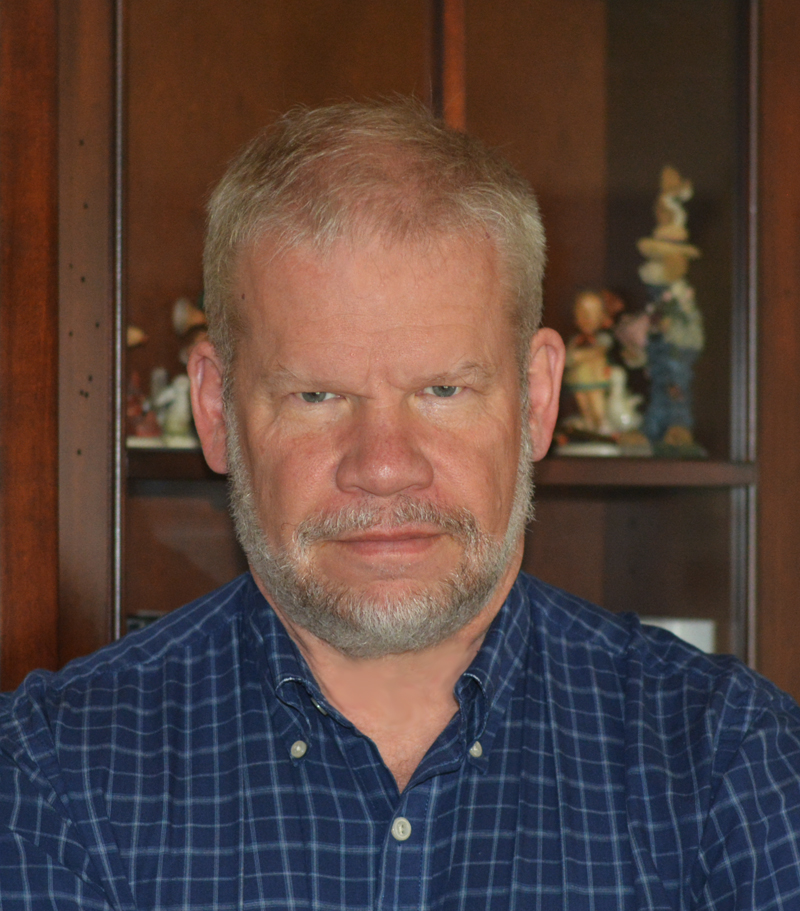
In honor of Celebrate Certification Month, the JCR Weekly reached out to two esteemed veteran NCRA members to find out what impact earning professional certifications has had on the success of their careers. We heard from Jason T. Meadors, FAPR, RPR, CRR, CRC, a freelance court reporter and firm owner from Fort Collins, Colo., and NCRA Director; and Donna Urlaub, RMR, CRR, a freelance court reporter and agency owner from Chicago, Ill., and frequent participant in state, national, and international speed and realtime contests. Here’s what they had to say:
JCR | How long have you been a working court reporter or captioner?
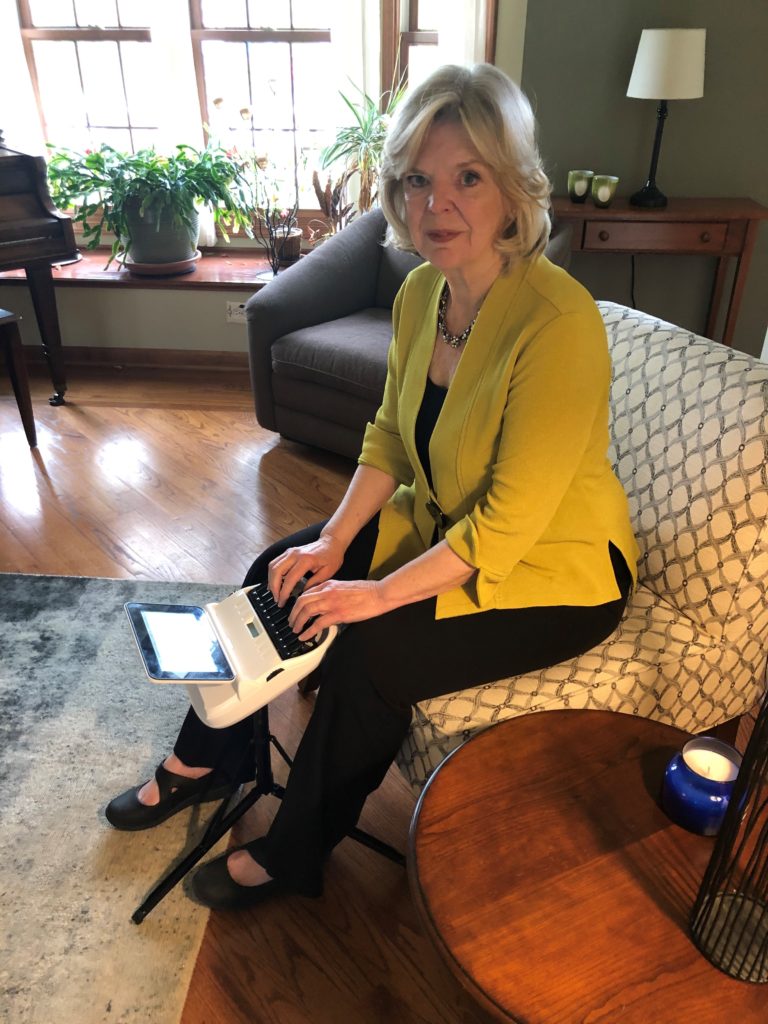
DU | I sat for the Illinois CSR in September of 1969. This is my 51st year in reporting.
JM | Forty-five years. Three-and-a-half years as a voice reporter for courts-martial, the rest in steno years as official and freelance with a smattering of captioning jobs.
JCR | At what point in your career did you begin pursuing your NCRA certifications?
DU | In my third year, 1972, I took and passed both the Certificate of Proficiency and Certificate of Merit on the same day. Back then, it was very casual, no need even to sign up in advance. And I received these cool pins with the “flying hand” holding a quill. The CP had a little red gemstone; the CM had a little diamond chip. Sadly, I have no idea what happened to them.
JM | Immediately after reporting school.
JCR | Why was it important for you to earn these certifications?
DU | The firm where I worked at the time had two merit writers out of maybe 30 reporters. That fact stood out to me, and I held them in high esteem. I was so young, a rookie surrounded by accomplished and experienced reporters. Attaining the CM was one way of measuring up to reporters who represented the gold standard in my sphere.
JM | To qualify for the work I wanted. To demonstrate to the world at large that I had the needed qualifications to do the work.
JCR | How valuable have these certifications been to you and your career?
DU | Having the CM was a source of great pride and confidence in my abilities. It was the pinnacle before realtime and the CRR and meant that I had proven myself capable of any assignment that came my way. It gave me the confidence to start my own firm, which I did in 1985. After typing and dictating transcripts for 11 years, I went to CAT in 1980. Once the CRR was introduced, I had to have it!
JM | Essential. The RPR allowed me to work as an official in Colorado. The CRR was required for my first international realtime assignments. The then-CCP, now CRC, was required for many weeks, over the course of years, of captioning work that I did in Alaska.
JCR | What would you say to encourage others to pursue certification?
DU | Do it for yourself. Do everything you can to be a professional: your appearance, your comportment, your level of skill that is on display.
JM | Good first impressions are critical. If your first impression when seeking work is certifiably proving that you possess the necessary skills, it’s a good one.
JCR | What would you say is the greatest benefit of holding professional certifications?
DU | The key words here are “professional” and “confident.” You are a confident professional when you strive to prove you are the best that you can be in your chosen field.
JM | Pride in profession and professional competence. Increased hiring potential.


